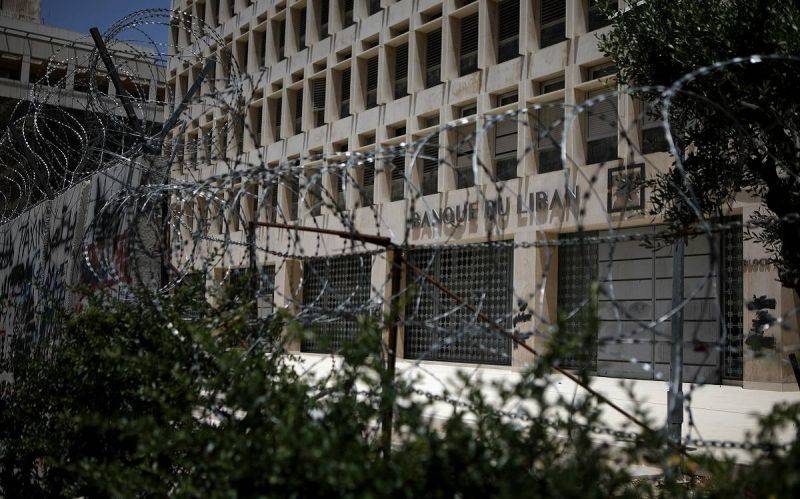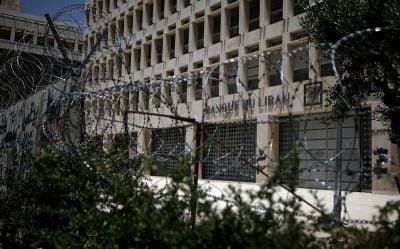
The headquarters of the Banque du Liban. (Credit: Patrick Baz/AFP)
The Banking Control Commission — the sector’s supervisory authority — has ordered Lebanon’s banks to send it an inventory of all their real estate assets by May 20. The request was sent earlier this week, according to two sources close to the banking sector. When contacted, the BCC said it did not wish to comment.
According to one of the sources, the BCC has specifically requested that the “fair value of the banks’ real estate assets” be transmitted to it. This is the “amount for which an asset could be exchanged, or a liability settled, between knowledgeable, willing parties in an arm’s length transaction,” according to the International Financial Reporting Standards, or IFRS, standard IAS32.
“The BCC has also asked them to include properties held by banks abroad,” the same source said.
The second source said the assets in question are mainly buildings used by banks in their business and properties they have been forced to seize from their customers, for example to pay off debt. “Banks can’t put their money into real estate,” the source said.
The step taken by the BCC is far from trivial in the context of a financial crisis that has been spreading since 2019, marked by a collapse of the national currency, the imposition of informal banking restrictions limiting depositors’ access to their accounts and losses of at least $69 billion accumulated by the state, the banking sector and Banque du Liban.
Heightened by the default on foreign currency government bonds announced in March 2020, the situation prompted officials to seek financial assistance from the International Monetary Fund, whose teams are currently in Beirut. One of the reforms requested by the IMF is a restructuring of the financial sector.
The first source quoted does not reject the idea that “the fact that the BCC is asking for details of their real estate assets seems to herald future developments on the restructuring file.”
The second source described the BCC’s move to accurately assess the financial situation of each institution as “positive,” noting that some banks have limited their exposure to sovereign debt and certificates of deposit issued by BDL, whose net foreign exchange reserves — everything it owns versus everything it owes — have been negative for years.
This article was originally published in French in L’Orient-Le Jour.
